1 - Introduction
The General Assembly of the United Nations, in its Resolution 58/4, of October 31, 2003, approves the United Nations Convention against Corruption, the basis for the development and implementation of anti-corruption policies, both at the public level and in private companies.
Bribery is a form of corruption that poses a threat that hinders the development of the market and distorts the reality of fair competition that must exist between the different operators. Governments cannot fight this threat alone, but need the full collaboration of companies and private entities as essential allies.
It is essential that companies and private entities establish detailed policies for particular risk areas, since the border between legal and corrupt practices can be blurred, which means that there are many gray areas that have to be regulated to draw the limits between the legitimate and illegitimate practices.
2 - Objective
Sofis Solutions is committed to the values and objectives of the United Nations Convention against Corruption and approves this Anti-Bribery Policy (1) as an initiative to combat possible fraudulent behavior and conduct contrary to current regulations and laws (3) in the matter of anti-bribery in the countries where business relationships are established.
As a sign of its commitment, Sofis has joined the international initiative of the United Nations Global Compact. This commitment asks companies to adopt, support and promulgate, within their sphere of influence, the 10 principles, a set of fundamental values in the areas of human rights, labor standards, the environment and anti-corruption. Sofis prepares and publishes the corresponding Progress Reports (COP), in order to inform stakeholders of the company about the progress made in the implementation of the Global Compact principles.
This Anti-Bribery Policy is part of the Anti-Bribery Management System established by Sofis Solutions and must be considered exhaustively for the fulfillment of the anti-bribery objectives established by the organization.
3 - Normative references
- PU UNIT-ISO 37001:2016 - Anti-Bribery Management Systems - Requirements with guidance for their use. Edition 2017-05.
- United Nations Convention against Corruption of 2005.
- Convention against corruption of foreign public officials in international business transactions, of 1999.
- Principles of the United Nations Global Compact.
- Regulations and laws included in the context analysis carried out by Sofis Solutions that contemplate the different countries where business relationships are established.
4 - Definitions
4.1 Bribery
The PU UNIT-ISO 37001:2016 on Anti-Bribery Management Systems defines bribery as “offering, promising, giving, accepting or soliciting of an undue advantage of any value (which could be financial or non-financial), directly or indirectly, and irrespective of location(s), in violation of applicable law, as an inducement or reward for a person acting or refraining from acting in relation to the performance of that person's duties”
That is, a bribe can be understood as the giving or receiving of something of value by a person (usually money, a gift, loan, reward, favor, commission or entertainment), as an inappropriate inducement or reward to obtain business or any other benefits. Bribery can take place in the public sector (for example, bribing an official) or in the private sector (for example, bribing an employee of a customer or a business partner). Bribery can take place when an improper payment is made by or through a third party.
4.2 Zero tolerance
Sofis Solutions has no tolerance for bribery of any kind, which means that any suspected incident of bribery will be investigated and any improper behavior may lead to disciplinary action for the organization's staff, including dismissal in serious cases, criminal charges, the termination of the contract or other sanctions in the case of professional services, partners, suppliers or even clients.
5 - Scope and audience
This Policy must be known and applied by all members of Sofis Solutions, including its partners/shareholders, members of the Management and all staff (in any form of contract), who must ensure that they do not get involved in any way in bribery activities, as well as committing to understand, accept and apply the Policy described in this document.
The Anti-Bribery Policy is communicated to clients, suppliers (including professional services) and business partners of the organization in such a way that it is contemplated and respected by them within the framework of the activities that involve existing business relationships with Sofis Solutions.
6 - Our Policy
6.1 General considerations
Annually, Sofis Solutions establishes objectives for its Anti-Bribery Management System and plans actions to achieve them, involving all the parties that are required and demanding compliance with the legal and regulatory requirements that apply, or others that it considers mandatory. Within these requirements is compliance with this Policy.
In order to prevent, detect and deal with bribery in the forms described above, Sofis regulates a series of benefits and courtesies that could be classified as bribery if not regulated and/or limited. These are listed in the points that follow.
6.2 Facilitation payments
Facilitation payments are understood as those small, unofficial and improper payments made to an official to obtain or expedite a routine or necessary procedure for the activity.
Facilitation payments can be given to officials to obtain licenses, permits, certificates and other types of public services, but also to commercial service providers (such as electricity or gas providers).
Public official or official means "any person who holds a legislative, administrative or judicial position, by appointment, election or as a successor, or any person who exercises a public function, including for a public body or a public company, or any official or agent of a local or international public organization, or any candidate for public office".
These facilitation payments are bribes; are prohibited by the United Nations Convention Against Corruption and therefore prohibited by this Policy.
Exception to the prohibition: In the hypothetical case that the request for a facilitation payment is accompanied by a threat to the safety or well-being of the employee or his family and close friends, that is, that we are facing extortion, it may be allowed to make such payment to avoid serious harm, provided that such threat and fear of imminent danger can be demonstrated
What to do in case of facing a demand for payment?
In the event that Sofis staff are faced with a demand for payment, they must act as follows, depending on whether we are dealing with a facilitation payment or extortion:
- Facilitation payment: If a demand for payment is received, proof of legitimacy and an official receipt must be requested. In the event that it is denied, the payment should not be made.
- Extortion payment: If the demand for payment entails a threat, the affected party may inform the organization of the fact in order to obtain its support, protection and endorsement if it is necessary to make the payment, if his or her life is at risk, health, safety, or liberty, or that of another.
This payment must be registered in the accounts of the organization and a brief investigation report of the event must be attached. In your case or if required by law, the relevant authorities must also be informed.
6.3 Gifts, hospitality, donations and similar benefits
Business gifts and entertainment, as well as donations or benefits of a reasonable scale, are used to strengthen working relationships between business associates or for the benefit of the community.
These benefits may be appropriate in certain circumstances or socially acceptable in certain cultures, or even proof of Social Responsibility (SR) activities. It may also be appropriate to accept or offer hospitality that includes travel to business events with people with whom we do business. However, if offers of gifts, entertainment or travel are frequent or of considerable value, they may create the impression, or the reality, of a conflict of interest or an unlawful payment, ie a bribe.
For this reason, this Policy establishes control mechanisms to avoid as much as possible that these services may be perceived as a bribe.
6.3.1 Gifts, entertainment and hospitality
They are gifts, advantages or benefits such as free delivery of own or third-party products, delivery of tickets or invitations to attend cultural, leisure or sports activities. Expenses of this type are, in principle, legitimate. Although it is a widespread practice, Sofis regulates them in this Policy, so that they are not used improperly or could result in a practice of bribery.
Gifts and hospitality must meet a series of requirements that regulate them:
(a) Control of the degree and frequency of gifts and hospitality.
In the private or public sphere, gifts and hospitality are allowed in the following circumstances:
- Gifts of modest value, such as mugs, pens, or t-shirts, or of symbolic value, such as trophies or plaques of recognition, may be given or received.
- In no case may cash or its equivalent (vouchers or gift cards) be offered or accepted.
- Only gifts or other types of attention that do not violate current legislation or are prohibited within the framework of a current contract may be offered or accepted; provided that the value does not exceed the amount of USD 20 (twenty United States dollars) for the same person.
- Gifts or invitations from/to the same person may not be accepted or made more than 3 times a year.
- The accumulated value of gifts received or made by a collaborator of the same company or person cannot exceed USD 100 within a period of 2 years.
- The Gift Policy of the Organizations with which we have business relations must be respected at all times.
- Gifts made in the form of services or benefits (for example, promises of employment) will not be accepted or offered.
- Gifts should not be given or accepted during or immediately after the negotiation of a contract.
- Gifts should not be accepted or offered to those directly involved in the award of contracts, approval of certificates, or others.
- They should not result in a problem if this gift is made public.
(b) When gifts and acts of hospitality exceed the established value or frequency, the prior approval of Management must be required, as well as that they be documented or registered in the Sofis Management System. These records will be public to the entire organization.
6.3.2 Invitations and other promotional expenses
Business entertainment can play an important role in strengthening working relationships between associates and implementing an effective business policy, so this type of expense is allowed as long as:
- Are related to a legitimate business purpose of the company.
- Are not done in a way that could be perceived or construed as a bribe.
- Are infrequent, there is no more than one in the course of two years.
- Are held in a place appropriate for business.
- Are appropriate in the context of a business relationship.
On the other hand, the following are prohibited:
- Excessive invitations in the context of the business occasion.
- Invitations that include obscene or inappropriate behavior.
- Invitations explicitly prohibited by law.
- Invitations explicitly prohibited by the client or supplier
- Invitations explicitly prohibited under the contract.
6.3.3 Travel
In relation to trips whose total or partial costs are assumed by Sofis, the following are admitted:
Within the framework of a project, officials from the organizations involved may be requested to travel to Montevideo, headquarters of Sofis, when necessary for the proper development of the work.
- Within the framework of events or presentations organized by Sofis in Montevideo, officials may be invited to attend.
- The costs assumed, whether total or partial, must be previously approved by the Sofis Anti-Bribery Compliance Function.
- These payments are restricted to necessary travel, lodging, and meals directly associated with a reasonable travel itinerary.
- The payment of expenses that are not restricted to those mentioned above is prohibited, so payments related to activities that can be considered leisure are expressly excluded.
- Payment of expenses of family members or friends is prohibited.
- Payment of vacation or recreation expenses is prohibited.
6.3.4 Political contributions
Sofis does not make political contributions of any kind. For this reason, it is strictly prohibited to make any type of donation, financial or otherwise, on behalf of the company to political parties, party officials, candidates, persons involved in politics or organizations that maintain close relations with a political party.
6.3.5 Charitable donations and sponsorships
Charitable donations are understood as any economic contribution or object of value that is donated to support causes or philanthropic activities in the sports, art, culture or education areas. On the other hand, sponsorships are focused on supporting activities, acts or events, which grant rights and benefits to the sponsor. In other words, Sofis will be able to use the name of the beneficiary and advertise this collaboration, and vice versa.
The risk of charitable donations and sponsorships is that they can be used to create an improper advantage or as a subterfuge for an act of bribery or corruption in general.
Sofis consents to making charitable donations that are organized on its own initiative or at the initiative of its employees. The objective is to collaborate with charitable institutions or with great social projection such as the Pereira Rossell Hospital Center, in a totally selfless way and provided that the following requirements are met:
- Be carried out within the legal framework.
- Not imply a conflict of interest with the activities of the company.
- Leave the corresponding record in the Sofis Management System adding the date and the items or objects donated.
- Not be made to secure improper business or obtain an improper advantage.
- Do not contravene any of the points established in this Policy.
- When the donation of money is carried out, it will be recorded by meeting a series of requirements:
- Making a donation will be avoided in the event that it coincides in time with the negotiation of a contract between the parties.
- There will be a record of the approval and completion of the payment.
- The donation will be disclosed in the beneficiary's own media and media.
6.3.6 Records
All the expenses listed and regulated above must be registered, so that there is evidence in the Sofis Management System that may be required by audits, judicial bodies and other authorities.
6.4 Business partners, suppliers, agents and intermediaries
All external suppliers of materials, products and services that provide key products are subject to the Sofis Solutions supplier management procedure, according to which they can become part of the supplier registry.
Sofis Solutions will require its agents, intermediaries and business partners to undertake to prevent bribery by, on behalf of or for the benefit of the business partner, in connection with the relevant transaction, project, activity or relationship linked to the organization.
The company will terminate the relationship with the supplier, business partner, agent or intermediary in the event of bribery by or on behalf of or for the benefit of the business partner in connection with the relevant transaction, project, activity or relationship.
No Sofis collaborator may contract persons or companies suspected of being or having been involved in acts of bribery.
However, if it were the case that said contracting was unavoidable even when there were precedents of bribery in the person or company or entity involved, Sofis would record the reasons for said decision.
6.5 Due Diligence
Sofis applies, in its personnel selection and hiring procedures, diligent measures to prevent the incorporation of people who may be conflictive in relation to the practices that this Policy seeks to eliminate and avoid. Thus, in the selection and hiring procedures, the guidelines for action and the controls to be applied to the candidate personnel and the incorporations are established, in order to prevent possible bribery.
In the case of business partners, due diligence procedures are also applied and, based on the results of processes, certain controls are defined (depending on the risk analyzed for each one of them and the type of relationship established) that allow minimizing bribery risk indices.
6.6 Conflict of interest
On the other hand, possible situations of conflict of interest are expressly regulated in this Policy.
There will be a conflict of interest when a member of Sofis has professional, personal or private interests that deviate from the interests expected of him when he is representing the company, that is, when the interests of the person are in conflict with those of Sofis.
It may happen that a company representative is tempted to privilege their private interests over those of the company and make decisions that do not represent the best for Sofis.
However, it should be noted that conflicts of interest occur in all organizations, but they are not negative per se, so they are also regulated in this Policy to prevent legal and beneficial actions for Sofis from being misunderstood.
To prevent certain situations from being misunderstood and casting doubt on the objectivity of a particular decision, evidence of these situations must be kept, communicated and documented.
Therefore, to prevent certain situations from resulting in a conflict of interest or not offering sufficient transparency, employees and managers must register and notify the Anti-Bribery Compliance Function:
- The gifts, benefits and hospitality received: the employee could make decisions in favor of the party that gave him some type of professional courtesy.
- The external appointments from which he is benefited: a company representative who is also appointed in another entity may be tempted to give up certain advantages for the benefit of one of the two (or more) organizations.
- Financial investments made in companies with which Sofis maintains or may maintain relations: the interested party could favor commercial relations with these companies over other more qualified suppliers during a tender.
- The offer of employment to family members: can lead to conflicts of interest when family members or close acquaintances are favored over other people more qualified for a certain position. These situations can lead to favoritism (nepotism) and therefore negative consequences for Sofis.
- The hiring of public officials: although it is legitimate for Sofis to benefit from the experience and knowledge of former or current public officials, its hiring must be closely supervised, as it may create the perception that an undue advantage has been obtained using privileged information.
When a conflict of interest situation is detected that could be detrimental to Sofis, it will be evaluated by the person who performs the Anti-Bribery Compliance Function, who will seek a solution in order to avoid materialization. You can make any of the following decisions:
- Do not authorize a member of the management staff to accept an additional external appointment in a company that puts their personal and institutional interests in conflict.
- Remove the person causing the conflict of interest from the particular situation.
- Remove the person causing the conflict of interest from the particular situation.
All decisions that may involve a conflict of interest in the terms set forth above must be justified and documented as evidence of Sofis' commitment to the fight against corruption.
7 - Review and continuous improvement
Sofis will carry out a regular verification or monitoring of this Policy. The monitoring and review process will allow:
- Ensure that the established controls are effective and efficient both in their design and in their use by monitoring their execution and the results obtained.
- Obtain additional information that is considered necessary to improve the assessment of risk.
- Analyze and draw conclusions from occurrences (including near misses), changes, successes and failures.
- Detect changes in the internal and external context, including changes in risk criteria and in risk itself, which may require review of risk treatments and priorities.
- Identify emerging risks.
- Check that the intended results were achieved and that the results of the risk assessment have been properly applied.
The Management leads and undertakes to comply with the guidelines of this Policy and the processes involved in the Anti-Bribery Management System, in order to achieve its continuous improvement, as well as to achieve compliance with the proposed anti-bribery objectives.
8 - Anti-Bribery Compliance Function
Sofis has the Anti-Bribery Compliance Function, whose main task, among others, is to control the correct development and implementation of the conduct guidelines established in this Policy.
This Function will ensure compliance with the provisions of this Policy, will deal with any conflicts that may arise related to it, in coordination with the Management when required, and will establish action plans to resolve them and safeguard the interests of the company.
By Sofis Solutions Management, the person who performs the Anti-Bribery Compliance Function is assigned the authority and independence required to be able to effectively perform the responsibilities of:
- Supervise the design and implementation of the Anti-Bribery Management System.
- Carry out the investigations that are necessary for the Anti-Bribery Management System in coordination with the Management of Sofis Solutions.
- Provide training and guidance to staff on the Anti-Bribery Management System.
- Ensure that the Anti-Bribery Management System complies with the requirements of the ISO 37001 standard.
- Report on the Anti-Bribery Management System to Management at established time intervals and/or when deemed pertinent for each particular situation that arises within the context of said management system.
The person who performs said function must remain impartial in cases of simultaneously performing another role, different from the Compliance Function, within the organization.
9 - Default. Bribery and suspicious activity reporting.
Any knowledge of actual or suspected breaches of this Policy must be reported to Company Management and/or the Anti-Bribery Compliance Function. Likewise, it is encouraged that the company be informed about those situations that may imply a weakness in the system in order to proceed with its correction or improvement.
Any report of bribery or suspicious activity will be treated as confidential. No person who makes a report of bribery or suspicious activity in good faith will be penalized or prejudiced for this activity.
All employees and directors have the obligation to inform their hierarchical superior, the person who performs the Anti-Bribery Compliance Function or Management about any non-compliance or bad practice that they observe in the performance of their professional activities.
If you are aware of any conduct (active or passive) contrary to the content of this Policy or any other internal regulations, you must follow the procedure for raising concerns or complaints and report it through the Ethical Channel, the email address:
canaletico@sofis.com.uy.
The complaint can be filed anonymously or the sender can be identified. In this case, Sofis guarantees the confidentiality of the information communicated.
All those people who, in good faith or on the basis of a reasonable belief, transmit their notifications will be protected against any type of discrimination and penalty due to the complaints made. False or defamatory accusations may be sanctioned or give rise to the exercise of the actions that may be permitted by law. This same channel can be used by interested parties to report other issues of interest or doubts about the application of this Policy.
10 - Awareness (advertising and training)
This Anti-Bribery Policy will be sent to all employees through ordinary communication channels (Sofis course platform and email) and will remain published on the Sofis website as a sign of transparency before third parties, both partners or private partners as representatives of the Public Administration
The Anti-Bribery Policy will be subject to appropriate communication, training and awareness actions for its timely understanding and implementation within the company.



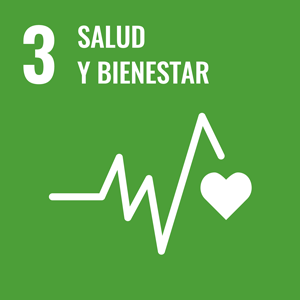 Ensure healthy lives and promote well-being for all at all ages.
Ensure healthy lives and promote well-being for all at all ages.
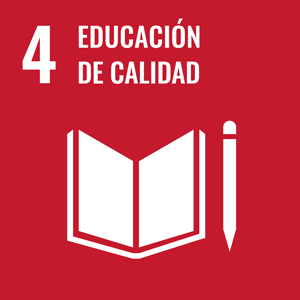 Ensure inclusive and equitable quality education and promote lifelong learning opportunities for all.
Ensure inclusive and equitable quality education and promote lifelong learning opportunities for all.
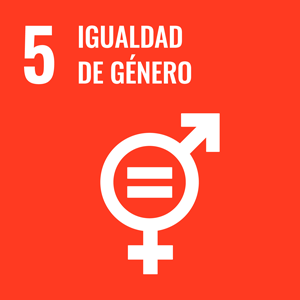 Achieve gender equality and empower all women and girls.
Achieve gender equality and empower all women and girls.
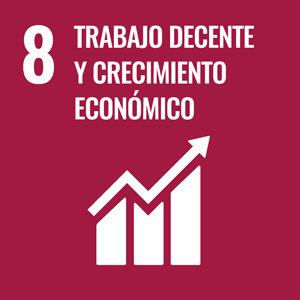 Promote sustained, inclusive and sustainable economic growth, full and productive employment and decent work for all.
Promote sustained, inclusive and sustainable economic growth, full and productive employment and decent work for all.
 Make cities and human settlements inclusive, safe, resilient and sustainable.
Make cities and human settlements inclusive, safe, resilient and sustainable.
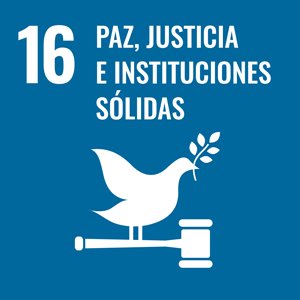 Promote peaceful and inclusive societies for sustainable development, provide access to justice for all and build effective, accountable and inclusive institutions at all levels.
Promote peaceful and inclusive societies for sustainable development, provide access to justice for all and build effective, accountable and inclusive institutions at all levels.